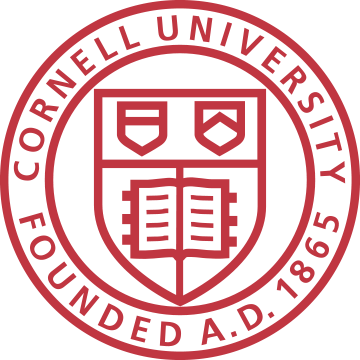Colleges and universities cherish individuality. Every institution is different, and all contain schools and units with distinctions of their own. But there is still a drive to efficiency, especially in this era of diminishing resources. How do you combine the decentralised requirements of a university with its need to operate more effectively?
For Cornell University, Workday Human Capital Management and Payroll solutions provide the answer.
“We are one of the largest private research universities in the country, with seven undergraduate colleges on the Ithaca campus and three professional colleges”, said Mary Opperman, vice president of human resources and safety services.
“We don’t run like a corporation. Our innovations come from the faculty and the collaborations that occur across disciplines. We need administrative systems that recognise this, that can adapt very quickly and don’t get in the faculty’s way”, she said. There was a need to streamline administrative functions in order to free up resources to put towards the university’s core missions.
“We are very decentralised, and we recognise that we do things in different ways for very important reasons”, she continued. “We need flexibility that matches our academic enterprise. Workday allows us to do that.”
We are very decentralised, and we recognise that we do things in different ways for very important reasons. We need flexibility that matches our academic enterprise. Workday allows us to do that.
VP of Human Resources and Safety Services
Poised for the future with Workday.
The decision to bring in Workday was part of a larger effort, called Reimagining Cornell, designed to look at the university and its administrative functions in a new light. The initiative had two components: first, making sure the university was doing everything it could to streamline administrative operations; and second, aligning people and resources toward the university’s long-term goals in academics, scholarship, research and service. In one aspect of the administrative review, a forward-looking team led by the dean of information sciences suggested looking at cloud technology for administrative systems.
“Workday really stood out for us as matching the way we do our business,” Opperman said. Because Cornell employees and managers can do their own routine transactions, the human resources team will lower its transaction costs and be able to focus more of its resources on strategic HR work. And because the Workday user interface is exceptionally friendly, employees find it easy to use. “Our academic department managers have looked at the desktop application and they feel that it’s very intuitive,” she said.
Workday Payroll adds new efficiencies.
For Cornell, having payroll combined with the HR system was a key benefit for them. “There are a lot of parts of higher education that are very fast-paced”, Opperman said. “It isn’t necessarily obvious just how vibrant the workforce really is. In our research area, for example, when we have a major research award come in, we’ll need to do a lot of hiring very quickly. It’s important that the systems be linked so we can get that award up and running very, very fast”, she continued.
“We decided early on that the decision to make any changes in the HR payroll system would be made as a community”, Opperman said. “It’s a big decision, and if we were going to do it, we were going to do it together.” The university asked department managers, business leaders in the colleges, IT staff, payroll specialists and key human resources staff to review the system. The result? “We’re all very excited about it”, Opperman said.
The same, but different.
With Workday, Cornell will be able to automate approval processes but still make them specific to individual colleges and units. “That feature is a big, big selling point for us”, said Opperman. “Right now we’re doing a lot of business process work to make sure that where we can be the same, we’ve made the commitment together to be the same, because that is most efficient. But where it makes sense for colleges and universities to have different approval processes or procedures, the system allows us to do that, too”, she said.
“Workday allows us to do a lot of things in human resources that we haven’t been able to do to date”, Opperman continued. “A major benefit is that we can move forward faster. We aren’t bogged down by difficult and time-consuming upgrades.” Workday allows the university to decide what features to turn on with each update.
“It’s also a very efficient system in terms of our ability to purchase it and our ability to run it”, she said. The appeal of lower maintenance costs and less complexity were deciding factors for them.

